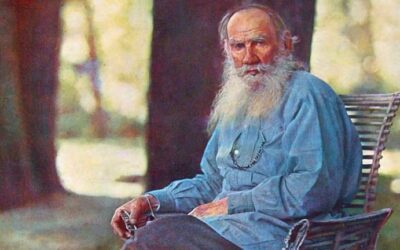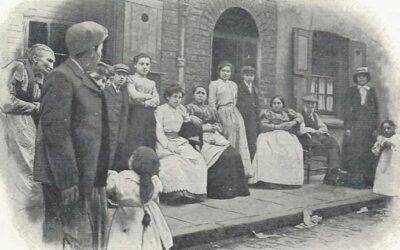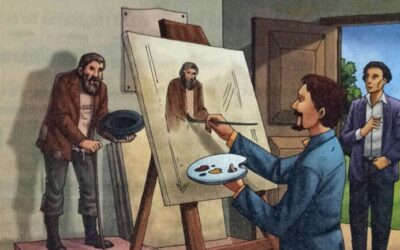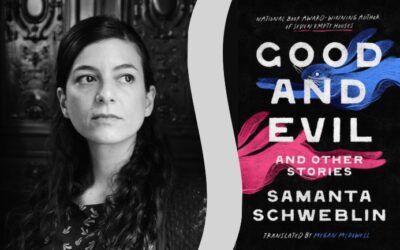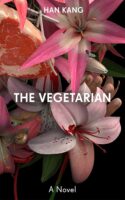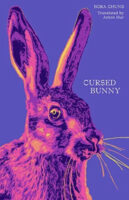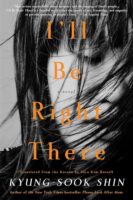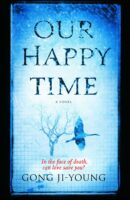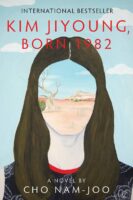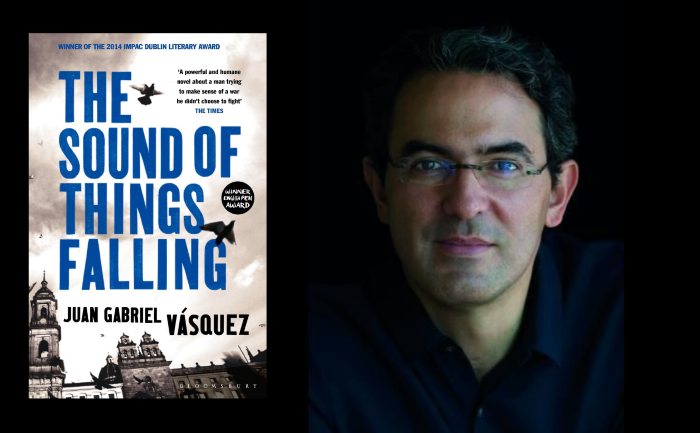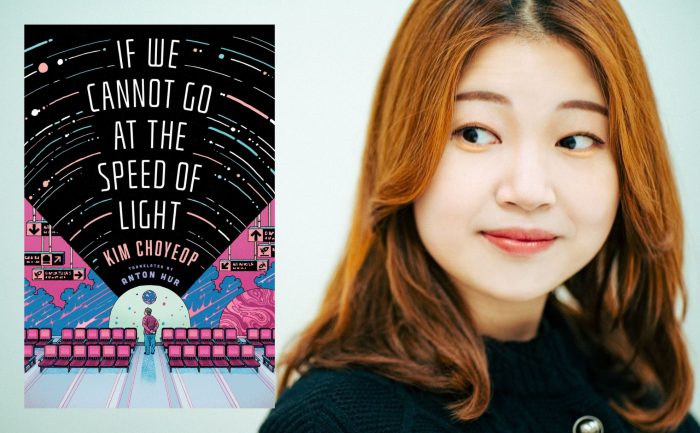5 Female Korean Authors Everyone Should Read
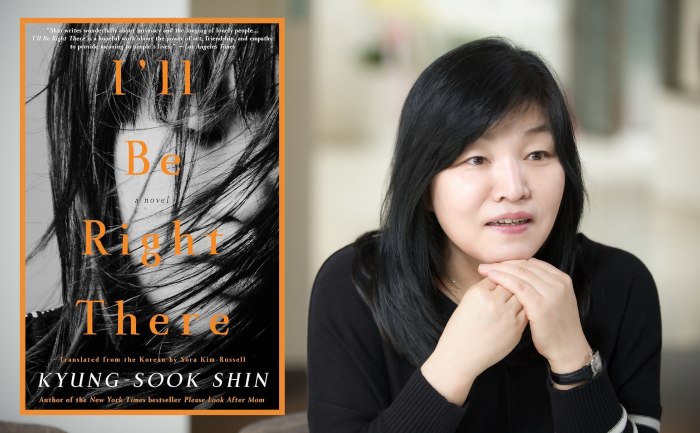 femal korean authors cover
femal korean authors cover
Korean Literature has a long legacy of literature spanning centuries. For the modern day, it also has a thriving literary scene highlighted by a number of wonderful women writers. Enjoy 5 Female Korean Authors Everyone Should Read!
This post may contain affiliate links that earn us a commission at no extra cost to you.
5 Female Korean Authors Everyone Should Read
Han Kang
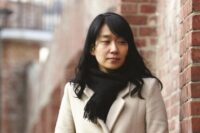
Han Kang was born in Gwangju, South Korea in 1970. At the age of ten, her family moved to Suyuri, Seoul and after finishing school, she studied Korean literature at Yonsei University. Her literary debut was the publishing of five poems, including Winter in Seoul, in the winter issue of Korean Literature and Society in 1993. Her career as a novelist started the next year when she won the 1994 Seoul Shinmun Spring Literary Contest with Red Anchor. She published her first short story collection Yeosu in 1995.
Her publications include short story collections, Fruits of My Woman (2000) and Fire Salamander (2012); novels Black Deer (1998), Your Cold Hands (2002), The Vegetarian (2007), Breath Fighting (2010), and Greek Lessons (2011), Human Acts (2014), The White Book (2016), I Do Not Bid Farewell (2021).
The Vegetarian
Yeong-hye and her husband are ordinary people. He is an office worker with moderate ambitions and mild manners; she is an uninspired but dutiful wife. The acceptable flatline of their marriage is interrupted when Yeong-hye, seeking a more ‘plant-like’ existence, decides to become a vegetarian, prompted by grotesque recurring nightmares.
In South Korea, where vegetarianism is almost unheard-of and societal mores are strictly obeyed, Yeong-hye’s decision is a shocking act of subversion. Her passive rebellion manifests in ever more bizarre and frightening forms, leading her bland husband to self-justified acts of sexual sadism. His cruelties drive her towards attempted suicide and hospitalisation. She unknowingly captivates her sister’s husband, a video artist. She becomes the focus of his increasingly erotic and unhinged artworks, while spiralling further and further into her fantasies of abandoning her fleshly prison and becoming – impossibly, ecstatically – a tree.
Bora Chung
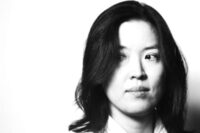
Bora Chung was shortlisted for the International Booker Prize in 2022. Born in Seoul in 1976, she has written three novels and three collections of short stories. Her latest collection of short stories, Your Utopia was published in English (translated again by Anton Hur) in Apr 2024.
Chung has an MA in Russian and East European area studies from Yale University and a PhD in Slavic literature from Indiana University. She currently teaches Russian language and literature and science fiction studies at Yonsei University, and translates modern literary works from Russian and Polish into Korean.
Cursed Bunny
Cursed Bunny is a genre-defying collection of short stories by Bora Chung. Blurring the lines between magical realism, horror, and science-fiction, Chung uses elements of the fantastic and surreal to address the very real horrors and cruelties of patriarchy and capitalism in modern society.
Anton Hur’s translation skilfully captures the way Chung’s prose effortlessly glides from being terrifying to wryly humorous.
Kyung-Sook Shin
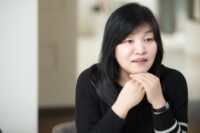
Kyung-Sook Shin is the author of numerous works of fiction and is one of South Korea’s most widely read and acclaimed novelists. She was the first woman to be awarded the Man Asian Literary Prize (for Please Look After Mom), and she has also been honored with the Manhae Literature Prize, the Dong-in Literature Prize, and the Yi Sang Literary Prize, as well as France’s Pirx de l’Inaperçu.
Please Look After Mom was her first book to appear in English in 2011, since then a number of her novels have been translated including I’ll Be Right There, The Court Dancer and Violets. I Went To See My Father was her latest work to be published in English in 2023.
I’ll Be Right There
“I’ll Be Right There,” follows a group of college-age friends coming of age in tumultuous 1980s South Korea, after one dictatorship has collapsed and another has taken its place. The novel opens with the narrator, Yoon, receiving a call from her ex-boyfriend, who tells her that a revered former professor, now aged, is nearing death.
The novel is full of beautiful and tragic moments between friends, a tender, complex exploration of shared stories, and, perhaps more important, the weight of a collective history on individual relationships.
Gong Ji-young
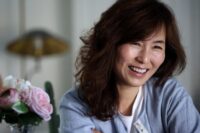
Gong Ji-young is one of Korea’s most beloved and critically acclaimed novelists. It was during her college years in the 1980s that she came into contact with the student movement. Her first novel Rising Dawn was a direct result of her involvement in the student and labor movements of that era. Her earlier works chronicle the 1980s and the students who like the author herself came of age during that decade of violent protest and political upheaval in South Korea.
She has sold more than 10 million books in South Korea alone. Her awards include the 2011 Yisand Literary Award, the 21st Century Literary Award, the Korean Novel Prize, Special Media Award, and Amnesty International for Our Happy Times. This is Gong’s first novel to be translated into English.
Our Happy Time
Yu-Jung – beautiful, wealthy, bright – is lying in her hospital bed, recovering from her third suicide attempt, when she receives a visit that will change her life. Her no-nonsense aunt, a nun, appears by her side, and suggests Yu-Jung might accompany her on a charitable visit to death row. At her lowest ebb, Yu-Jung is resistant. But something compels her to go to the prison. There she meets Yun-Soo, a convicted murderer who will soon be put to death. And, though repulsed by his crimes, something about the depth of his suffering strikes a chord in her. Shaken by their encounter, she returns to visit him the next week. And the next…
Through their weekly, hour-long meetings Yu-Jung and Yun-Soo slowly reveal to each other the dark secrets of their pasts, the hidden traumas that have shaped their lives. In doing so they form a deep, unbreakable bond, helping one another to overcome their demons. But Yun-Soo’s hands are always in cuffs, the prison-officers are always in the background, and they can never lose sight of the fact that their happy time together is tragically brief.
Poetic and vividly told, Our Happy Time is a passionate and heart-breaking love story. It is also an important, hard-hitting and compassionate fable for our times – a story about crime, punishment, and forgiveness from a major Korean talent.
Cho Nam-Joo
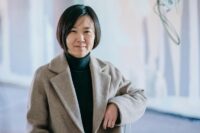
Nam-joo was born in in 1978. She grew up in Bucheon and moved to Seoul with her family at the age of five. She graduated from Ewha Womans University with a sociology degree
Nam-joo began her career in television as scriptwriter. She spent nearly a decade as a writer for TV programs about current events at a broadcasting station. She left work to raise her child, then returned as a writer. She is best known for her 2016 novel Kim Ji-young, Born 1982, which has sold more than a million copies and is often credited with propelling a feminist movement in South Korea.
Kim Jiyoung, Born 1892
Kim Jiyoung is a girl born to a mother whose in-laws wanted a boy. Kim Jiyoung is a sister made to share a room while her brother gets one of his own.
Kim Jiyoung is a female preyed upon by male teachers at school. Kim Jiyoung is a daughter whose father blames her when she is harassed late at night.
Kim Jiyoung is a good student who doesn’t get put forward for internships. Kim Jiyoung is a model employee but gets overlooked for promotion. Kim Jiyoung is a wife who gives up her career and independence for a life of domesticity.
Kim Jiyoung, Born 1982 is the life story of one young woman born at the end of the twentieth century and raises questions about endemic misogyny and institutional oppression that are relevant to us all.
If you enjoyed 5 Female Korean Authors Everyone Should Read, check out 7 Best Korean Books to Read


